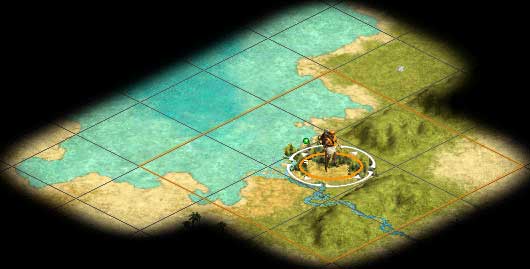 |
 |
 |
 |

| Realms Beyond Civilization - Epic Forty-one: Balance of Power |
|
Sponsor: Bihary Civilization:
English
Scenario concept: How much of the balance of power in Conquests is under player control? Let's find out! In this scenario, the player will try to maintain equilibrium between the competing civilizations, their own included, throughout the game. Success will come from helping the weak, and containing the strong; by continuous, careful use, and redistribution, rather than accumulation, of power and potential resources. England's history is the prototype for seeking the balance of power in the old continent, securing a safe, and sometimes dominating, position in Europe. 1588 - Queen Elizabeth does not hesitate to ally with pirates to fend off her rival of the seas, the invincible Spanish Armada. 1805 - In the Battle of Trafalgar, the English admiral Horatio Nelson defeats the French-Spanish fleet. This victory shatters Napoleon's dreams of invading England and speeds up unified resistance against French domination in the continent. 1854 - To protect the warm seas from the Russian bear, England supports Turkey in the Crimean War. 1904 - The pact Entente Cordiale paves the way for Anglo-French diplomatic and military cooperation against the emerging power of Germany before and during World War I. 1915 - Italy, a former ally of Germany and Austria, is persuaded to join World War I on the side of England and France. 1941 - "If Hitler invaded hell I would make at least a favorable reference to the devil in the House of Commons," says Winston Churchill. He then comes pretty close to his word, making an alliance with the Soviet Union to contain and eventually defeat Germany in World War II. 1946 - "From Stettin in the Baltic to Trieste in the Adriatic an iron curtain has descended across the Continent," says the same Churchill, soliciting Pan-Atlantic cooperation against Soviet dominance in Europe.
Variant Rules * No self-destruction! No gifting cities, no starving if avoidable, no population decrease by building token settlers or workers. No disbanding of military and non-military units. * Build wisely! You may not disband units, and you may not merge settlers or workers into a city. * Blockades: When you are inside another civ's borders, you may not completely block access to a city or resource, unless you are at war with all civs that are at war with the civ whose land you are blockading. As long as you have RoP with another civ, you are welcome to build roads or perform other helpful actions. However, keep the "Resource Piracy" exploit in mind! You may not keep a unit on a resource to prevent another civilization from connecting that resource, unless you're in neutral territory or at war with that civ! Feel free to connect any and all resources, though.
Scoring: The base score is based upon the distance in game score between the leading and the trailing civilizations. Each time you enter a new age (middle, industrial, and modern), and at the end of the game, you may earn scenario points. On the first turn of a new age, record the game score of the eight competing civilizations (your own included). Civilizations not yet contacted, and those that have been eliminated, are considered to have a score of zero. Take the average of the four highest scoring civilizations (yourself included if among the highest four), and the average of the four lowest scoring civilizations (yourself included if among the lowest four). Divide the low average by the high average, this is the balance ratio you achieved for the previous age. Multiply the balance ratio with 20 for the Ancient/ Middle Ages, and with 30 for the Industrial/ Modern Ages (rounding to the closest integer). The result is the number of scenario points you earned for the previous age. Example: You just started the middle ages. The top four civs are Italy with 850, Turkey with 820, France with 780, and Netherlands with 750, for an average high score of 800. The four trailing civs are England with 500, Prussia with 600, Spain with 600, and Russia with 700, for an average low score of 600. 600/800=0.75. Multiply 0.75 by 20 for a total of 15 scenario points for the Ancient Age. Repeat this process to determine scenario points at the beginning of the Industrial and Modern Ages, and at the end of the game. If your game ends before the Modern Age, use your final game score for the remaining age(s). For verification purposes, keep a copy of your game's save file at the start of each new age and at the end of the game. Do not use the "interturn" score except for your game-end calculation, so that you will be able to save at the time you are calculating points. At the end of the game, it is the unmodified raw score that should be taken into account, not the final score with the bonuses. You can also earn bonus points, which are added to your total score. Diplomatic
victory: +20 points Honorable game (no "dastardly" tactics): +10 points Ties, if any, will be broken by fastest finish date.
Closing date: Monday, June 21, 2004. Reports due June 21 or 22. Read Epic Forty-one Results | ||



gamersyndrome



| Griselda - KingOfPain - Charis |

